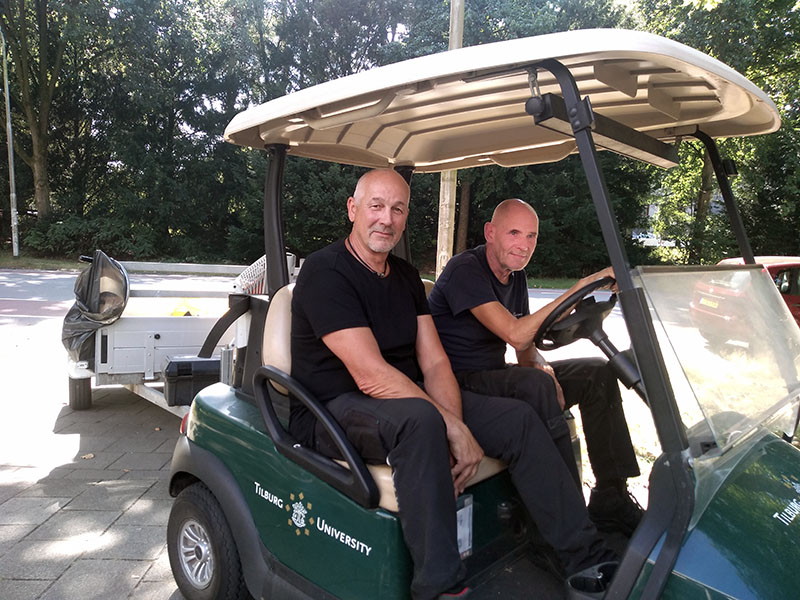The money cannot be found on the street, but in the trash can
The campus is busy again. Hot weather, lots of thirst, so there is a lot of drinking, including from disposable bottles. But where do they go after people have quenched their thirst? Often neatly in the waste basket. Very neat, say the men who empty the bins. Because those bottles are worth money.

Those men are Rob and Rinus, they drive around campus every day to keep the trash cans empty and the campus clean. That was always pretty straightforward: collect trash and throw it in big containers on campus. Then a garbage truck comes and takes it all away to be separated and processed.
But since last year, there is a better way, the men discovered. Then a deposit on small bottles was also introduced, 15 cents. For example, on bottles of water, soda, or juice at the AH to go. You do have to pay extra for it, but getting the money back afterwards is not going to work on campus, two employees of that store acknowledge. “So, if you’re smart, you can make good money that way,” says one.
And so that is exactly what Rinus and Rob do. Before they have the waste taken away unseparated, they put on their gloves and pre-separate the trash themselves. All bottles are fished out and taken on a trip to the deposit machine at the Albert Heijn on Professor de Moorplein. So too on Thursday, with about two shopping carts full. The profit? A few ten-euro bills, they say. In the end it was a bit disappointing because there were still many non-refundable bottles among them.
A nice bonus, but not enough yet for champagne, caviar, and silver spoons. Maybe next year when a deposit on cans is introduced. But until then, it is spent on things that matter in life: coffee and cookies.
Translated by Language Center, Riet Bettonviel






